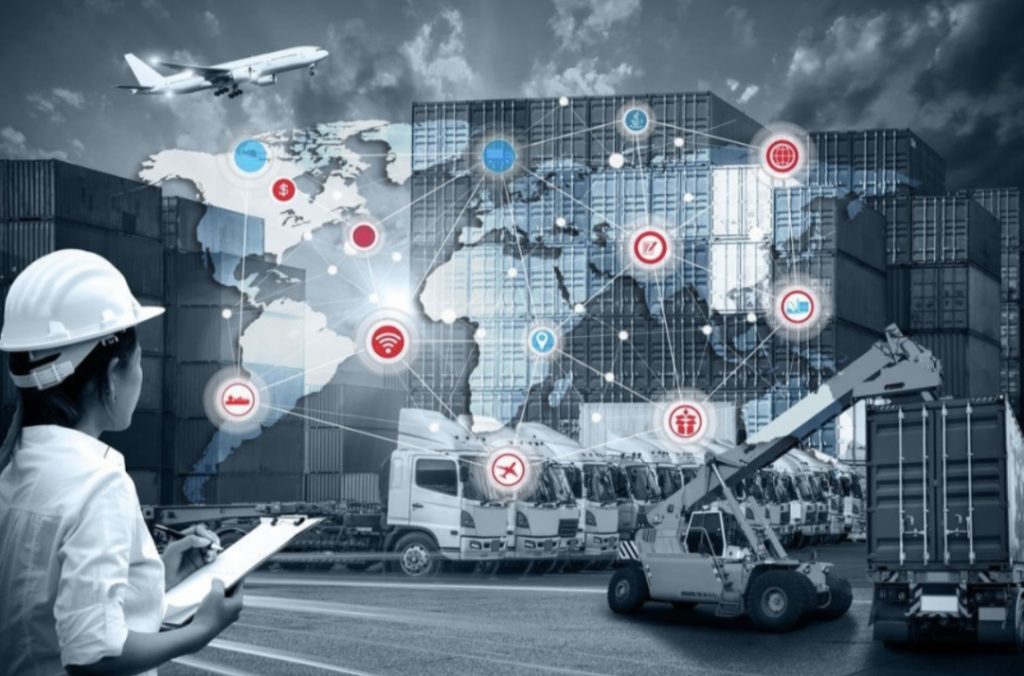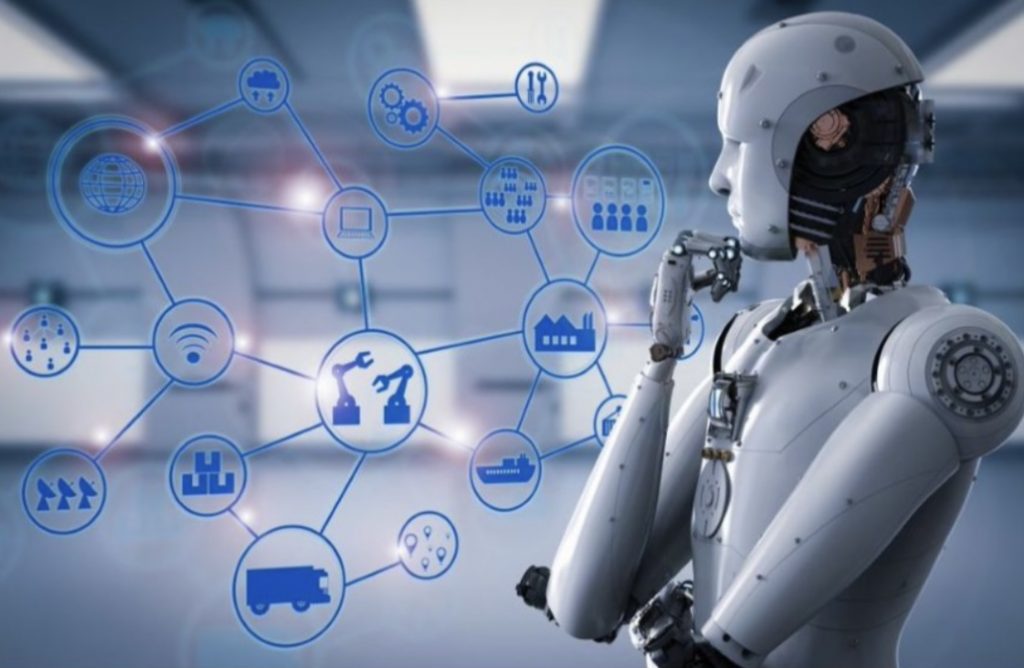Corporations are enlarging their customer base and prioritizing their online storefronts. Brick-and-mortar retail stores are in decline while online sales continue to skyrocket. As trade becomes increasingly globalized, the need for efficient and cost-effective means to ship goods increases exponentially. This trend is forecasted to go up in the future, which will lead to increased demand for fast and reliable delivery.
The shipping and logistics industry has long been a critical part of global trade, allowing goods and commodities to be conveyed across tremendous distances to reach consumers anywhere. However, the industry has undergone rapid technological headways in recent years, and Artificial Intelligence (AI) is proving to be a game-changer in the field of shipping. Most executives whose companies have adopted AI report that it has provided an upward trend in revenue in the business areas where it is applied, and 44% say AI has reduced costs. A recent study by Goldman Sachs indicates that advancements in AI, particularly generative AI systems like ChatGPT (Chat Generative Pre-trained Transformer), may significantly transform operational landscapes in many industries.
 The dynamic and interrelated nature of the supply chain of the shipping and logistics industry compels constant interaction between shippers, carriers, and suppliers with respect to ordering products, scheduling appointments, communicating with carriers about a delivery, solving unforeseen but unavoidable problems that arise in transit, and communicating with shippers and receivers about delivery. According to Priyesh Ranjan, CEO of Vorto; “ChatGPT is a superior tool for dealing with those dynamic communication need, and solving logistics challenges quickly and optimally across the separate but interconnected domains of shippers, suppliers, warehouses, and truckers.”
The dynamic and interrelated nature of the supply chain of the shipping and logistics industry compels constant interaction between shippers, carriers, and suppliers with respect to ordering products, scheduling appointments, communicating with carriers about a delivery, solving unforeseen but unavoidable problems that arise in transit, and communicating with shippers and receivers about delivery. According to Priyesh Ranjan, CEO of Vorto; “ChatGPT is a superior tool for dealing with those dynamic communication need, and solving logistics challenges quickly and optimally across the separate but interconnected domains of shippers, suppliers, warehouses, and truckers.”
Chat GPT, a long-form question-answering AI and context recognition chatbot developed by OpenAI has the extraordinary ability to interact in conversational dialogue form, and provides responses that appear surprisingly human. Combining this GPT model with optimization algorithms that utilize a company’s data would create a skilled virtual worker with the inherent ability to get better over time. Shipping corporations could realistically start thinking of significantly increasing the number of ships in its fleet without increasing headcount in chartering, voyage operations, and fleet management.
AI-driven platforms such as ChatGPT hold great potential for the industry. By leveraging large quantities of data points that corporations capture, ChatGPT can be used to make logistics processes less complex. It can also play a vital role in automating processes, analyzing customer data, identifying patterns, and proactively communicating with customers about their shipments. ChatGPT can thus keep customers informed about the status of their orders and / or get answers to their inquiries in real time, and thereby significantly impact brand perception positively.
 In the modern era of globalization, the popularity of online purchasing and digital transactions will grow to record highs in the coming years, which will only further increase the demand for fast and reliable delivery. Therefore, inventory control systems are areas of operations within the shipping industry that need to be automated fast. These automated tools should require little manual oversight as they will incorporate best-practice ML (Machine Learning) techniques for automatic continuous improvements.
In the modern era of globalization, the popularity of online purchasing and digital transactions will grow to record highs in the coming years, which will only further increase the demand for fast and reliable delivery. Therefore, inventory control systems are areas of operations within the shipping industry that need to be automated fast. These automated tools should require little manual oversight as they will incorporate best-practice ML (Machine Learning) techniques for automatic continuous improvements.
Currently, shipping corporations are exploring automation in everything from marketing, through route planning to logistics center operations, and inventory control systems. This focus on automation is quickly becoming the standard within the shipping industry and the competition is fierce. Shippers continuously search for and experiment with new technologies to decrease delivery costs and time, and to improve reliability. For example, UPS reduced gasoline usage by millions of gallons and avoided emissions equivalent to over 20,000 passenger cars per year by using software that predicts the most efficient route for each truck.
 By 2027, experts predict that all major shipping concerns will utilize artificial intelligence and automation tools to improve these key factors. As the Senior Director of Business Intelligence & Analytics at Hapag Lloyd AG, Florian Heinemann, explains, AI is becoming increasingly important in the shipping industry due to the vast amounts of data generated by this sector. By leveraging AI, shipping companies can analyze this data to detect patterns and identify potential scenarios, allowing them to make informed decisions and optimize their operations.
By 2027, experts predict that all major shipping concerns will utilize artificial intelligence and automation tools to improve these key factors. As the Senior Director of Business Intelligence & Analytics at Hapag Lloyd AG, Florian Heinemann, explains, AI is becoming increasingly important in the shipping industry due to the vast amounts of data generated by this sector. By leveraging AI, shipping companies can analyze this data to detect patterns and identify potential scenarios, allowing them to make informed decisions and optimize their operations.
One of the most significant areas where AI is having a transformative impact in the shipping industry is the field of predictive maintenance. AI can predict possible failure points at various stages of the shipment life cycle and automatically organize the action plans to handle potential issues. By analyzing data collected from sensors installed on ships and other equipment, AI algorithms can identify challenges before they occur, enabling shipping companies to schedule maintenance and prevent costly breakdowns. It can also be used to monitor vessel performance, identify areas for improvement, and ensure compliance with environmental regulations.
The application of AI is also proving useful in the shipping industry with respect to supply chain optimization. The industry’s supply chain depends on complex communication to keep each moving part on track — from the supply through shipping and storage, and to the last mile. These domains are nuanced, and the frequent crossover causes challenges because communicating effectively and at a high level to solve problems is difficult. ChatGPT can bridge these divides across domains and raise the level of communication to levels that allow for better outcomes. By leveraging AI technology, shipping companies can optimize shipping routes, reduce transit times, and minimize costs. These would inure to the benefit of customers who would receive their goods faster and at a lower cost, and also to the shipping corporations by helping them maintain a competitive edge in the industry.
 Tarry Singh, a top AI expert, when asked, “How AI is driving the economic growth of the maritime industry” commented, “AI may be an opportunity that shippers should be looking at very seriously. Maritime operations have been extremely optimized, but there are “last nautical mile” efficiencies such as vessel precision operations using various geographical data to make ETAs/ETDs, fine-tuning container routing, and re-routing, fuel-consumption models that offer Fuel Savings Guarantees.” He recommends for the industry to move forward by identifying patterns through Machine Learning, becoming aware of, and accessing “big data,” training IT staff about Machine Learning, and more.
Tarry Singh, a top AI expert, when asked, “How AI is driving the economic growth of the maritime industry” commented, “AI may be an opportunity that shippers should be looking at very seriously. Maritime operations have been extremely optimized, but there are “last nautical mile” efficiencies such as vessel precision operations using various geographical data to make ETAs/ETDs, fine-tuning container routing, and re-routing, fuel-consumption models that offer Fuel Savings Guarantees.” He recommends for the industry to move forward by identifying patterns through Machine Learning, becoming aware of, and accessing “big data,” training IT staff about Machine Learning, and more.
In conclusion, AI-driven platforms such as ChatGPT hold enormous potential for the industry and are already transforming the ways shippers operate globally, proving to be a particularly valuable tool in optimizing operations, improving customer service, and driving cost savings. Shipping and logistics industry players need to keep up with the rapidly changing technological landscape to remain competitive and avoid being left behind the fiercely competitive industry.
Players in the shipping and logistics industry that fail to adopt technology-driven operations risk extinction as more innovative application of AI technology is expected in the future to ramp up the industry’s efficiency and competitiveness.






